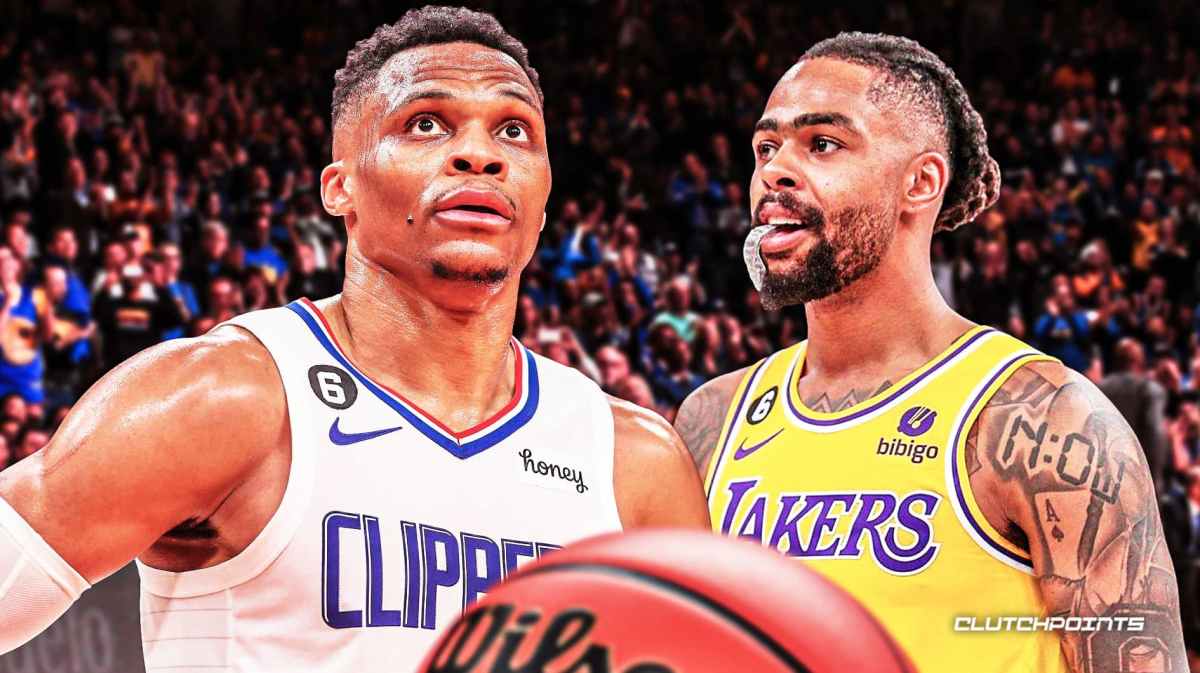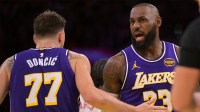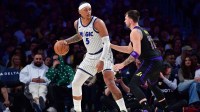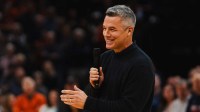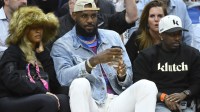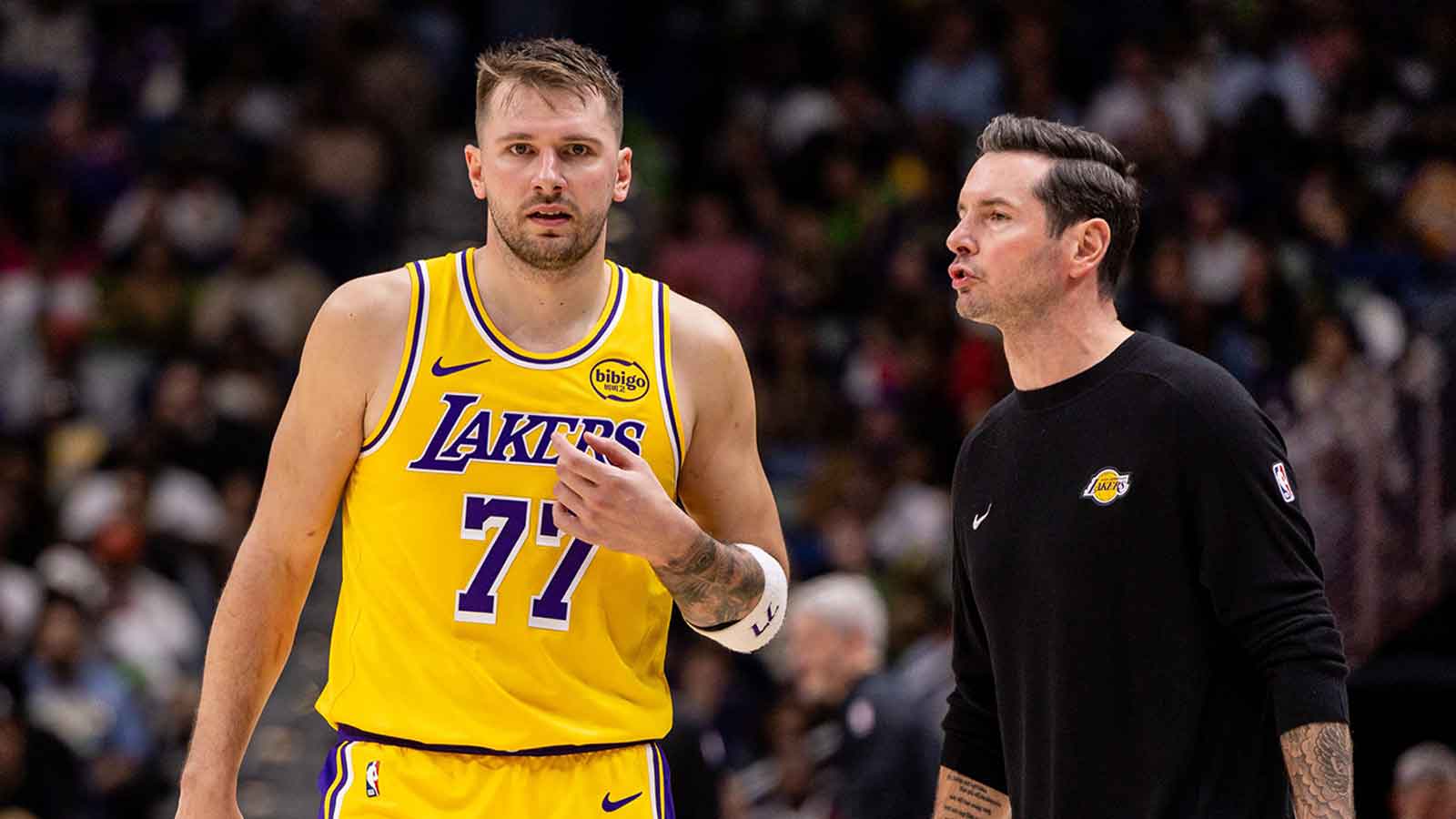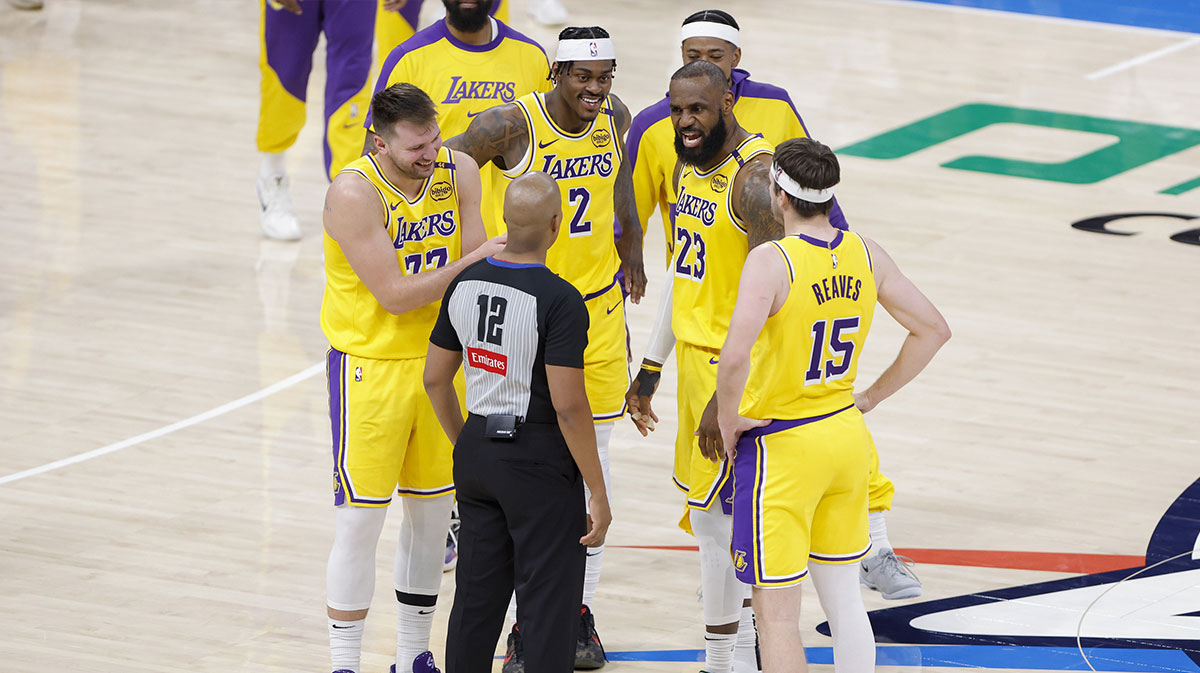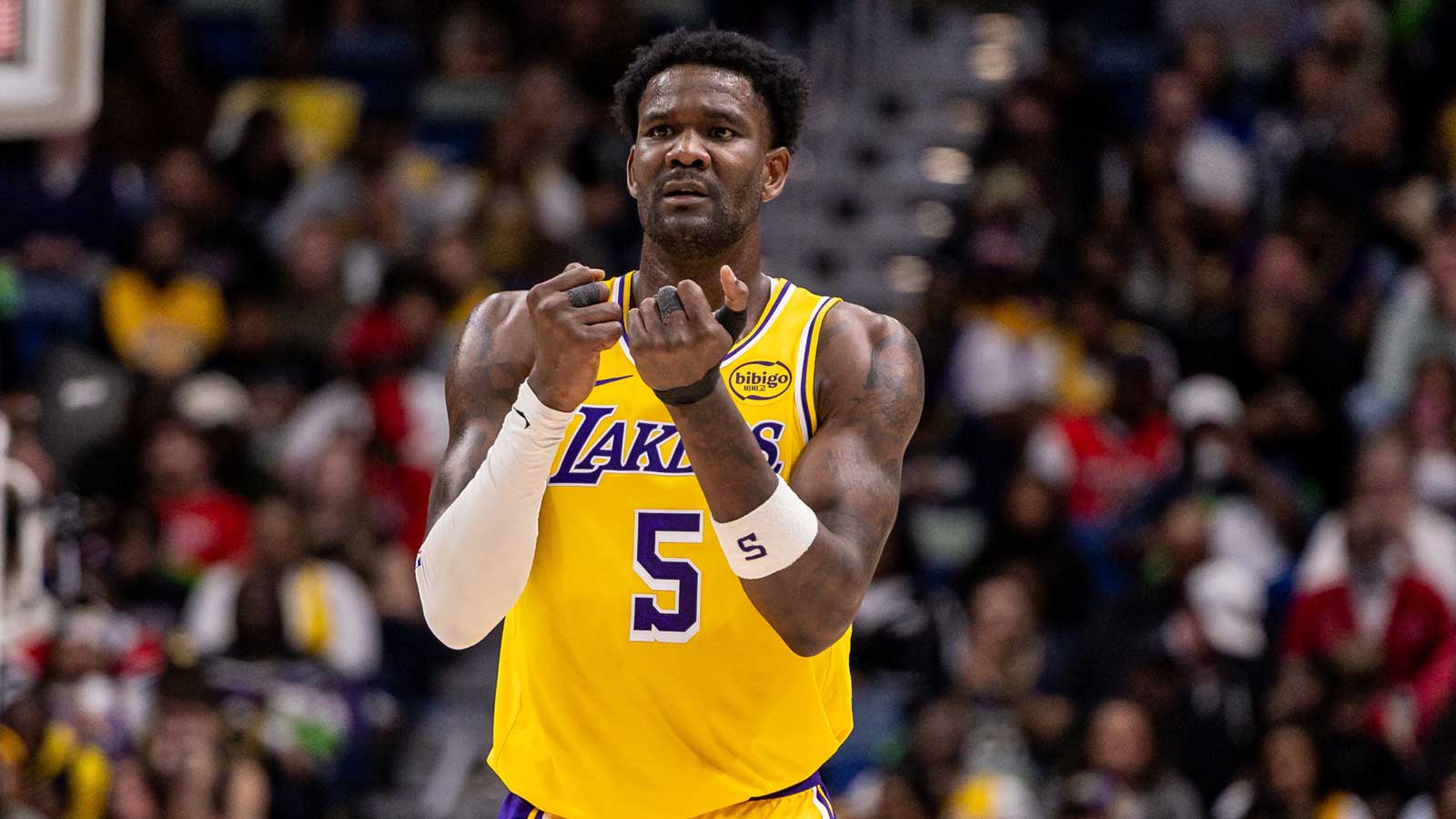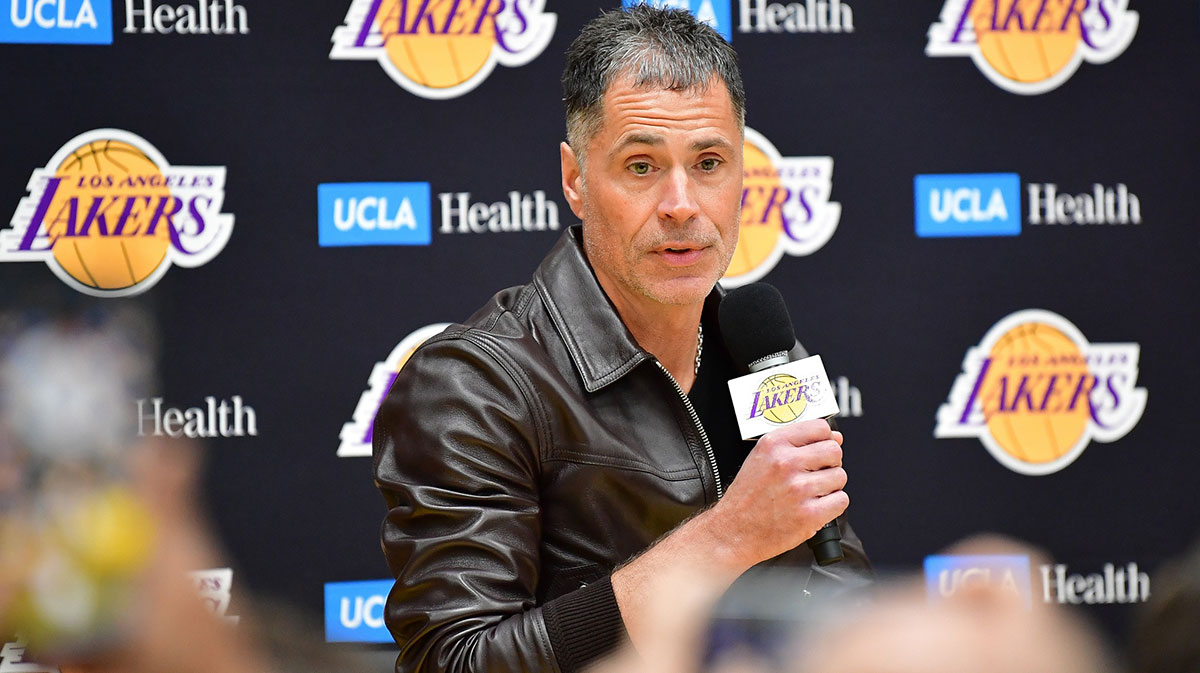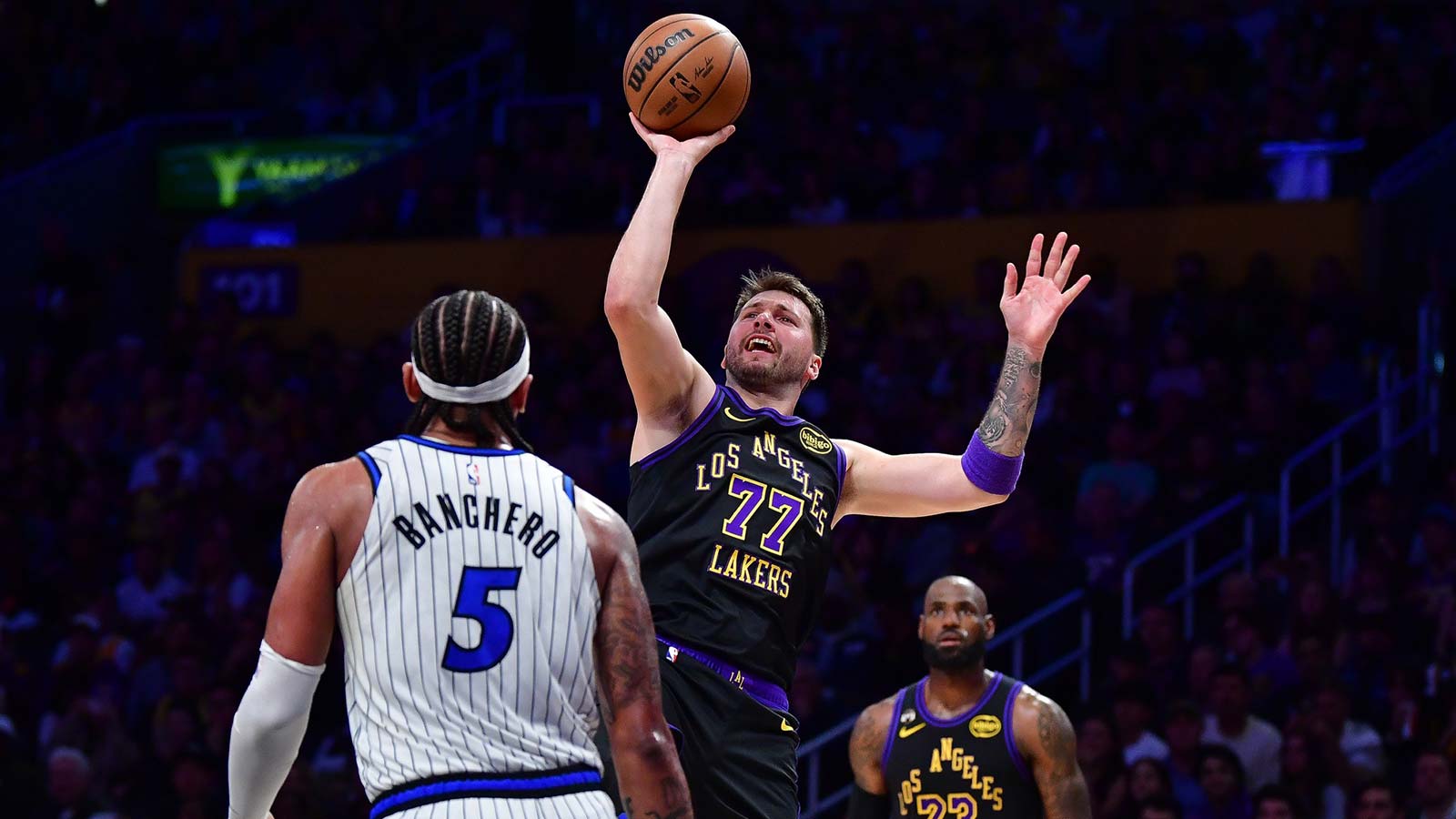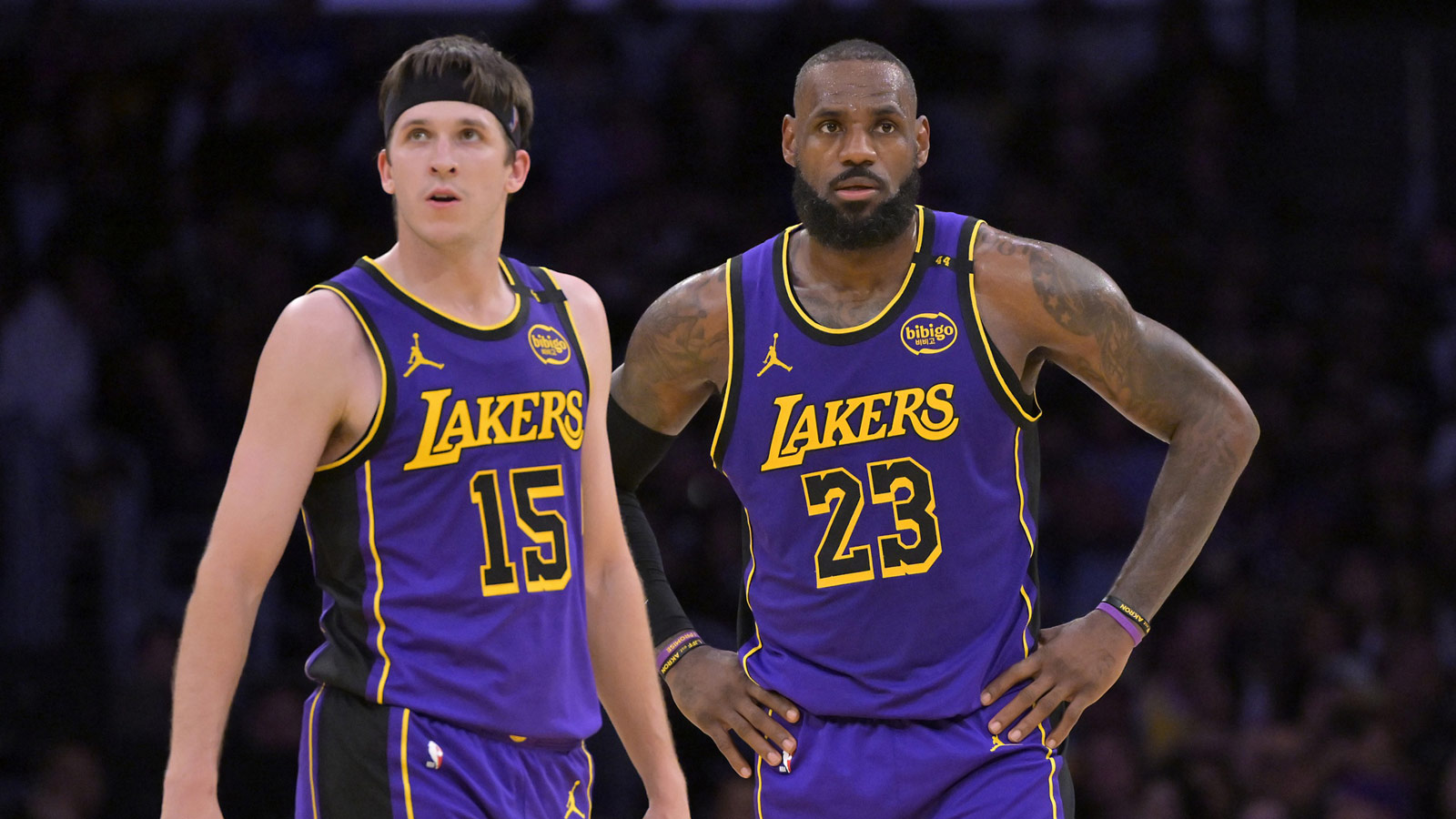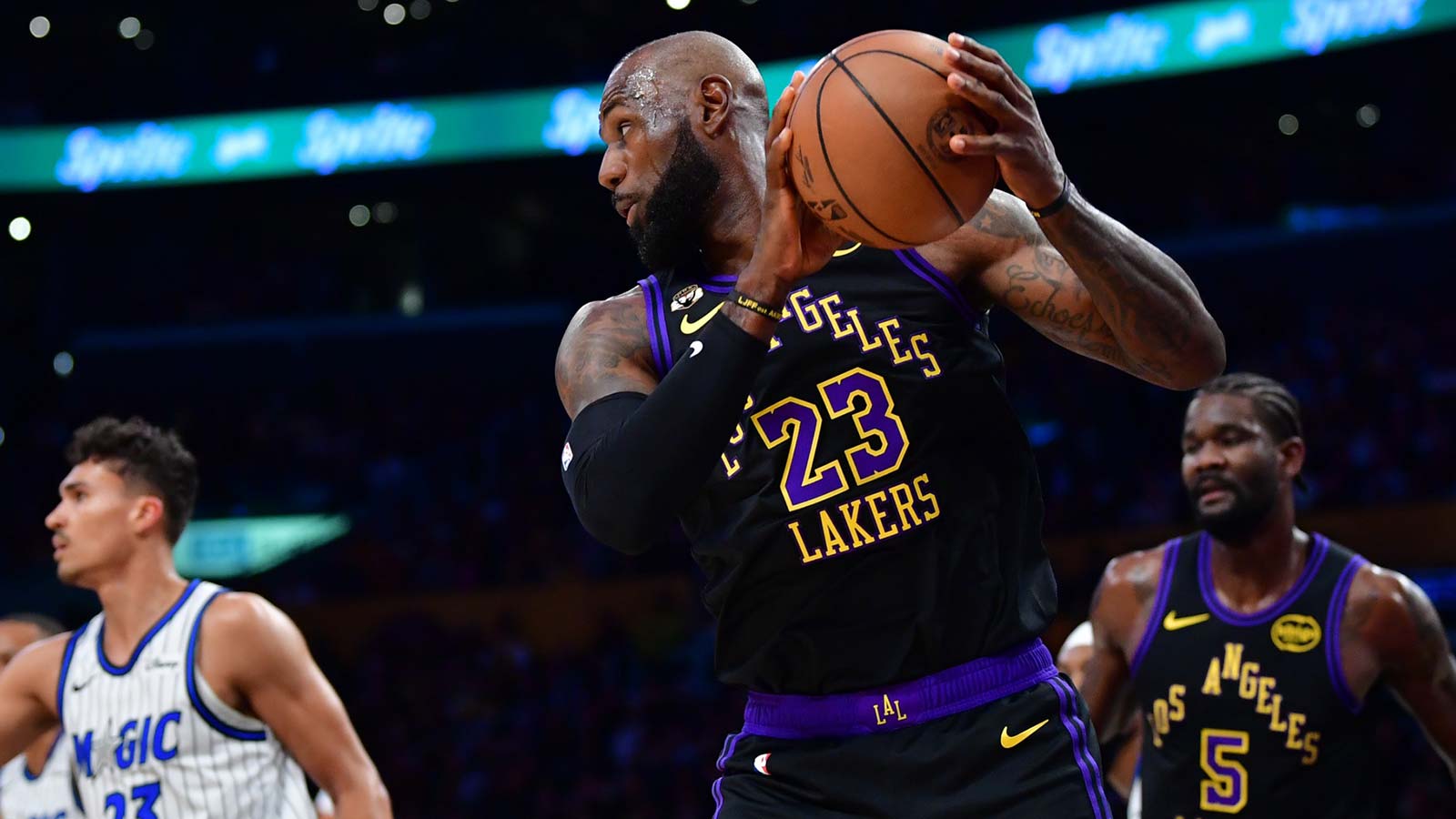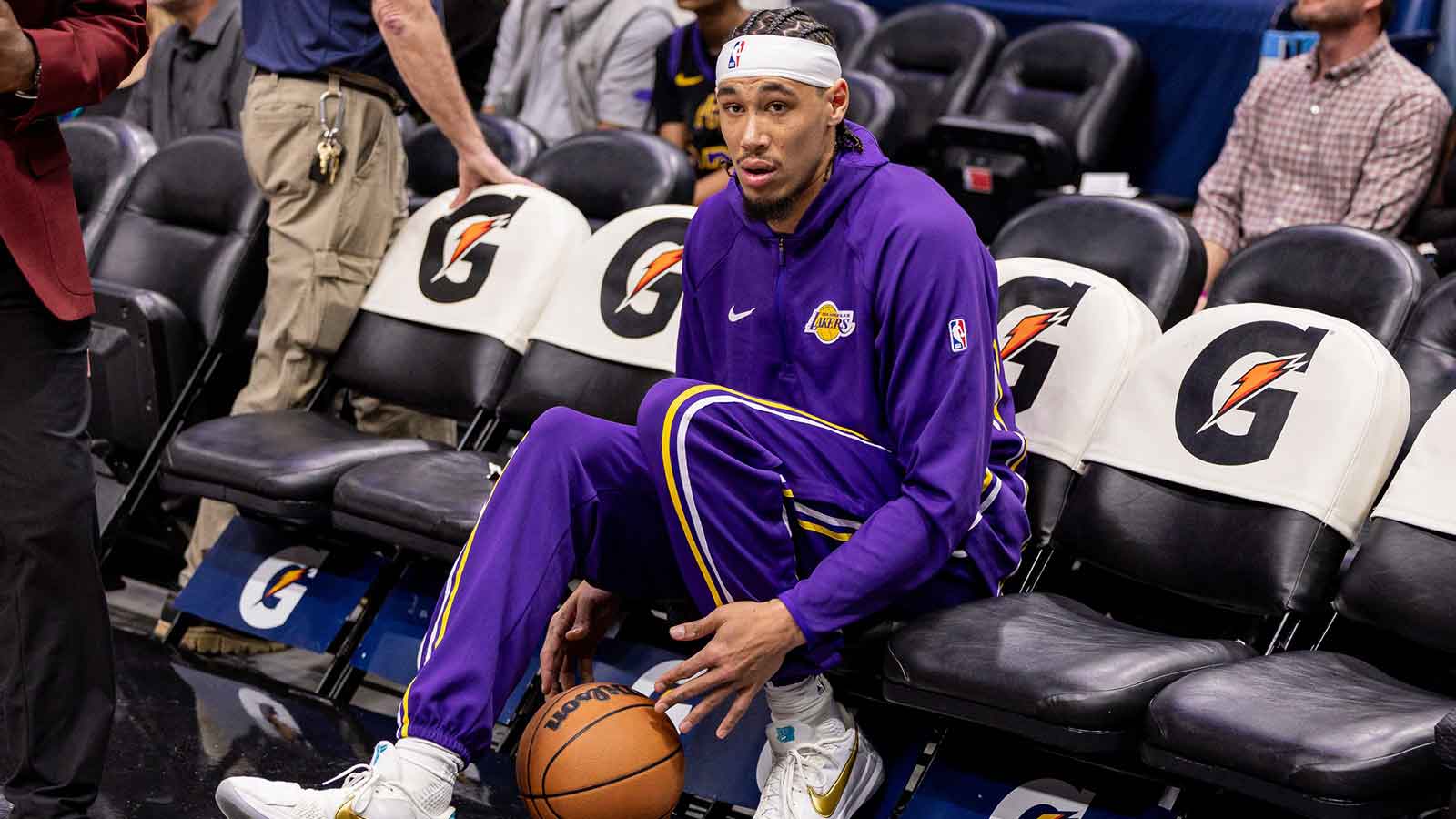D’Angelo Russell wasn’t at his best in the Los Angeles Lakers 4-0 loss to the Denver Nuggets in the Western Conference Finals. In fact, he was a bit of a disaster. In four games, he averaged just 6.25 points per night, shooting 32.26% from the field, going 2-15 from three-point range, and seeing his minutes gradually decline to the point where he played just 20 minutes in Game 3 and 15 minutes in Game 4.
Those numbers were even more noticeable given what he’d done previously since being traded back to the Lakers – where his career first began – in a move which included parting ways with Russell Westbrook. Prior to the series, Russell was averaging over 30 minutes in his 13 games with them, averaging closer to 21 points on very efficient shooting while also dishing out over six assists a game. He played a key role in their playoff run prior to the Nuggets series, but with a spot in the NBA Finals on the line went missing and was ultimately removed from the starting lineup by coach Darvin Ham.
But despite what the naysayers will cry from the rooftops, that doesn’t make the trade a dud. The Lakers trading Russell Westbrook was beneficial for a number of reasons, not all of which are directly tied to D’Angelo Russell’s performance. These are just a couple of reasons why the Lakers were still right to make the trade.
1. The development of Austin Reaves
In fairness to him, Westbrook was able to adapt to the Lakers’ need to an extent this season, with his move to the bench the most notable example. However, when on the floor, he was still a player who needed the ball in his hands often. With a guy called LeBron James also running around out there and Anthony Davis ideally getting involved as much as possible, that didn’t leave a whole lot of room for others to play a big hand in the offense.
Reaves was playing some solid basketball up until February with Westbrook on the team, but once he left, the 24-year-old showed what he was really capable of. He consistently put up solid numbers off the bench, culminating in a 35-point effort against the Orlando Magic in mid-March, and was subsequently rewarded with a move to the starting lineup. He relished the challenge, averaging 18.3 points and 6.1 assists per game over the remaining ten games of the regular season, and averaging similar numbers in the playoffs. He displayed a calm which belied his years with his increased role, and his ability to make the right decisions was pivotal for the Lakers. What’s more, he’ll only continue to get better.
Whether Westbrook was there or not, Austin Reaves had talent. But with one high usage teammate out of the picture, it gave him an increased opportunity to show what he was capable of, and he took it with both hands.
2. Fit, fit, fit
It’s no secret that fit is pretty important in basketball. What’s good for the goose is not necessarily good for the gander, and the same player that plays a key role on one team can be detrimental to another. Prior to the All-Star break, there was plenty that the Lakers needed to get better, but another player outside of LeBron and AD who needed the ball in his hands a lot was not one of them.
This is not to launch an attack on Westbrook. Though well past his prime he still had his moments this year, and was a valuable player at times for the Lakers coming off the bench. But that was not a situation which really suited him, nor the team.
Contrast that with D’Angelo Russell. Though theoretically a point guard, he’s relatively comfortable playing off ball and unlike Westbrook, is a dangerous off-the-ball shooting threat. He’s happy enough trotting around, running simple pick-and-rolls here and there, taking mid-rangers at a moderate rate, and shooting off the catch when open looks present themselves.
Of course, when the Nuggets series came around, he wasn’t hitting those shots, which meant that he didn’t offer a whole lot. But with the Lakers' improved depth – which the trading of Westbrook largely helped to generate – Darvin Ham was able to restrict his minutes likely with a few less issues than if it was Westbrook.
The Nuggets series showed that the Lakers best offense comes when LeBron is getting inside, Davis is being aggressive, or the ball is in Reaves’ hands. Whether Westbrook or Russell was there, that would have been the case, but the ability for those players to take a back seat to their more efficient teammates would have been vastly different.
After demonstrating so much promise after the All-Star break, the Lakers' season ultimately ended in vastly disappointing fashion. But while D’Angelo Russell’s poor performance in the Nuggets series didn’t help, it certainly wasn’t the only reason they lost, and doesn’t make the trade a flop. Removing Westbrook from the equation was something that had to happen, and despite D’Angelo’s ultimate playoff benching, this trade was still a win for the Lakers.

